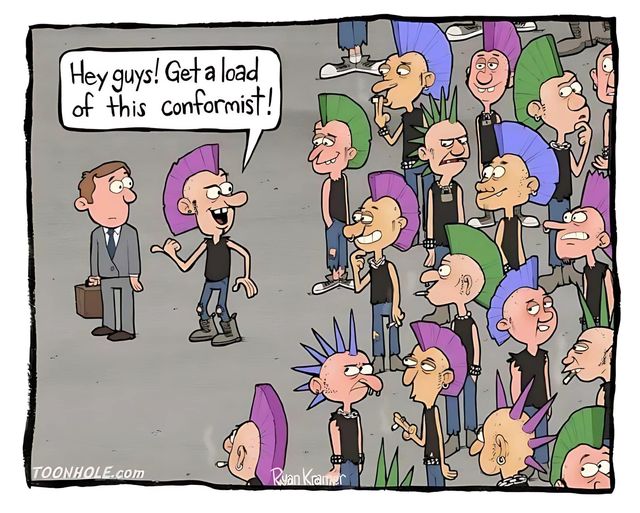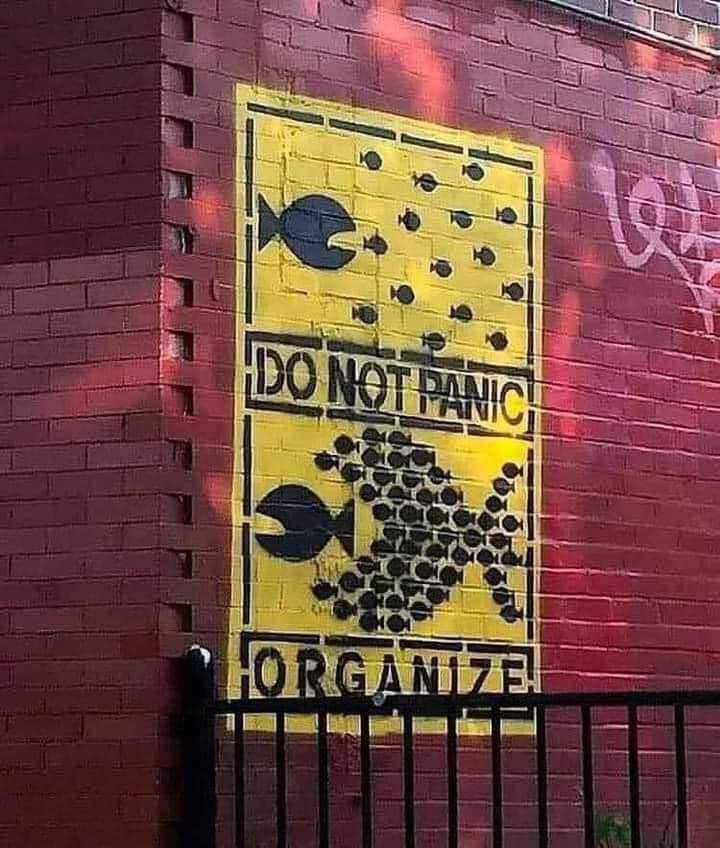A key point that often gets misunderstood – #Mainstreaming isn’t inherently good or bad – it depends on who is influencing whom.
- Good #mainstreaming = Bringing #openweb values into the mainstream (transparency, decentralization, cooperation).
- Bad #mainstreaming = The mainstream (corporate control, surveillance capitalism, hierarchy) infusing itself into the #openweb and reshaping it in its own image.
In the current context, mainstreaming is mostly bad because it pushes dilution of radical alternatives into market-friendly compromises. The #deathcult (neoliberalism) doesn’t absorb things in good faith, it co-opts and neutralizes them.
That’s why we need mediation, pushback, and a clear understanding of context when talking about #mainstreaming. Sometimes it’s the right move, but right now, the priority is defending and growing the roots of the #openweb before our # #fashionistas can sell it off as a brand.
On this path, one of the best things about the #Fediverse is that real people and community’s get to choose what kind of digital paths they want to take. Don’t want #Meta snooping around? Join or host an instance that blocks them out. Prefer not to have people search your content? Lock it down in your settings. Want to mediate the strong #blinded flow of “normies”? Close the doors via your instance settings. It’s a “nativist” system that offers a radical degree of agency compared to the #dotcons.
But what happens when people start demanding that their version of the #Fediverse become the default for everyone else? That’s where things get tricky, and where we risk losing the most valuable aspect of this messy, decentralized network: the bridges between worlds. The danger of closed loops, it’s understandable that people want their corners of the #Fediverse to feel safe, sustainable, coherent, and aligned with shared values.
The problem is that when we focus on tools so that every group can retreat into its own echo chamber, we recreate the failures of the wider #dotcons web: fragmented bubbles where ideas stagnate, and meaningful conversations can’t happen. This is what I mean when I talked about #mainstreaming echo chambers, the tendency for people to isolate themselves in what feels comfortable, which ultimately makes everything smaller.
The irony is that this impulse to close off is, in a way, the same as the desire to keep the Fediverse open. Both are reactions to the failures of centralized tech platforms. People who want to mediate #mainstreaming influences are trying to nurture the fragile seedlings of the grassroots culture they’ve built, while those advocating for broader adoption hope to prevent the network from collapsing into irrelevance. Both impulses come from wanting the Fediverse to survive, they just express that desire in too often opposite #blocking ways.
The failed bridging of FediverseHouse is a normal, the tension came to a head with projects like #FediverseHouse and #Fediforum, which aimed to be a gathering space but ultimately failed to build lasting bridges. It wasn’t because people didn’t care, it was because there wasn’t enough understanding of how to hold that tension between the grassroots and the mainstream without one swallowing the other. The projects lack the simplicity of #KISS (Keep It Simple, Stupid) and got tangled in the same old dynamics of control and fragmentation.
Keeping the bridge in place has a lot to do which sharing resources, in non #mainstreaming ways, yes, we understand, this is a hard leap for meany people but only people who can make this step can be useful in the end to the “native” #openweb paths. The solution isn’t to pick a side, but to intentionally hold the bridge in place.
In a smaller, view, that might look like running accounts across multiple instances and boosting content between different ideological spaces to keep ideas flowing. It might mean advocating for #4opens values even in mainstream-leaning spaces, or gently nudging the more isolated pockets of the Fediverse to stay curious about what lies outside their walls.
The Fediverse doesn’t need to be one thing, that’s its strength. But if we let the bridges decay, we lose the possibility of cross-pollination, of radical ideas seeping into #mainstreaming consciousness, or of everyday people stumbling into a space that makes them question the status quo. Instead of fighting, as we so often do, to make one version of the #Fediverse dominant, maybe the real work is in keeping the network alive, messy, imperfect, but always connected. Because it’s in those connections that real alternatives grow.



